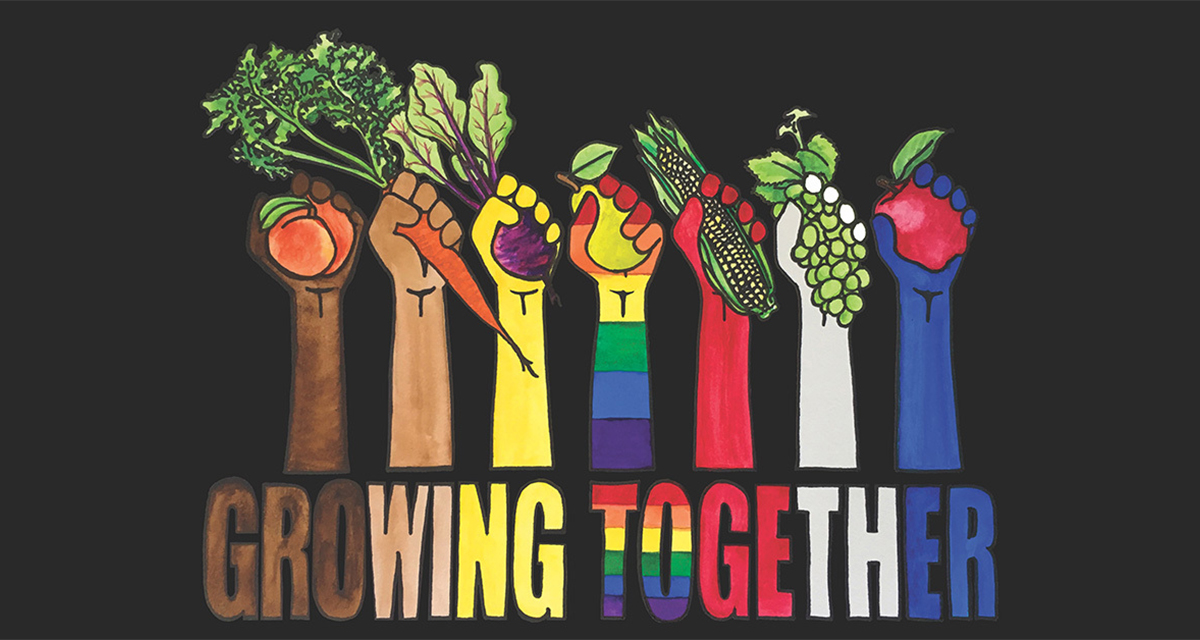Michael Dimock | Roots of Change
Black Voice News
June 18, 2021
Access to healthy food systems impacts every aspect of our lives.
When hungry stomachs diminish students’ ability to focus, learn, and retain information, their education suffers. In adults, lack of access to nutritious foods leads to overall poor health and chronic illnesses such as heart disease, hypertension and type 2 diabetes – negatively impacting their ability to work and provide for their families.
This year we witnessed how COVID-19 has preyed on Californians living with chronic illnesses, especially people of color who often live in “food deserts” where healthy food is less available.
Roots of Change and others are working to remedy food injustices such as these, but the stark realities exposed by COVID-19 demonstrate more help is needed, and needed now. The Health Equity and Racial Justice Fund and Governor Newsom can make a difference.
The Senate and Assembly Budget Committee has recommended an unprecedented $100 million annual investment that would support community-based organizations, clinics and tribal organizations to address the root causes of health inequities. Our vision is that organizations awarded these funds will use state and local data to identify the most pressing needs in their community and develop strategies to address them.
The proposal builds on Assemblymembers Gipson and Carillo’s bill, AB 1038, calling for the establishment of a California Health Equity Fund which has passed in the Assembly with strong bipartisan support. The Governor must now agree to support the bill and budget proposal.
Current programs the Fund may be used to support include the California Nutrition Incentive Program (CNIP) which provides CalFresh families with matching dollars to “make fresh affordable,” and the Healthy Corner Stores Refrigeration Grant Program that provides bodegas and corners stores in low-income communities with refrigeration units and technical assistance so they can sell fresh produce.
The Fund could also be used to support the Medi-Cal Food Prescription Pilot Program, another proposal pending in the Legislature. Through this program, Medi-Cal beneficiaries would receive healthy food “prescriptions” if their health providers determined their underlying health conditions could be helped by a healthier diet. Prescriptions could include produce, healthy food vouchers, food boxes, groceries or prepared meals.
Another use of the California Health Equity Fund could be supporting the School Food Hub Pilot program, a proposal to create “food hubs” throughout the state that help identify, market, and distribute locally-sourced, healthy foods to California school districts, not only helping to ensure better nutrition for students, but also supporting local farmers and rural communities who have been hard hit by COVID-19.
Healthy food access on a daily basis can prevent disease and better defend our communities against viruses like COVID-19. Through the California Health Equity Fund, we can address this current health crisis, help avoid billions in future health care costs, and strengthen our communities so they are better prepared to face challenges brought on by pandemics, climate change, and natural disasters.
California is the greatest source of healthy food the planet has ever seen. There is no excuse for so many communities to go without. Particularly when we can harness that abundance to improve public health. AB 1038 will invest in communities hardest hit by the pandemic, help them recover from the physical and economic loss caused by the virus, build healthier communities, and ensure Californians are more resilient in the advent of future crises. We call on Governor Newsom to support the proposed funding for the Health Equity and Racial Justice Fund and to pass and sign AB 1038.
Roots of Change is a co-sponsor of AB 1038. The nonprofit organization works together with universities, governments, businesses and like-minded organizations to ensure that every aspect of the food supply chain—from when it’s grown to when it’s eaten—will be healthy and accessible for all eaters, safe and fair to workers and profitable for companies.
